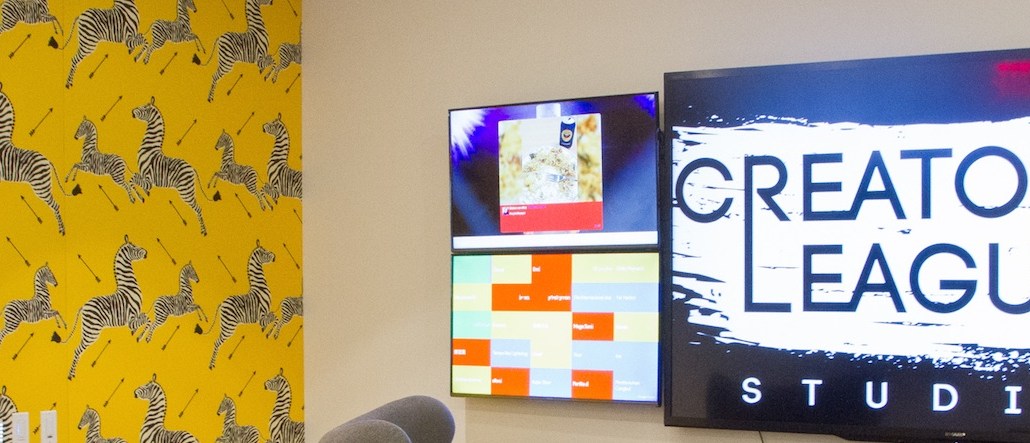Save 50% on a 3-month Digiday+ membership. Ends Dec 5.

Before this week, if Pepsi needed to get an edit made to an online film or piece of content, it would involve sending the piece off to an agency, who then in turn would perhaps send it an editor — a process that took, on average two weeks.
Today it takes an hour.
This week the soda brand announced the opening of “Creators League,” a 4,000-square foot content studio in New York’s SoHo neighborhood that the company hopes will let marketers, not agencies, sit in the creative driver’s seat.
“For many years we did marketing in a way where we did maybe two or three spots a year,” said Kristin Patrick, svp of global brand development at PepsiCo.
Today, in comparison, she estimates that the company creates 400 pieces of digital video and content a year, including YouTube films, social videos and photos. (An example: this video featuring Alicia keys creating to support the UEFA Champions League.) That used to go through agency partners and production shops, but the Creators League space will be a way for Pepsi to bring all of that in house and do it quickly, as well as cheaply.
A tour of the space shows multiple editing bays, screening facilities and a lot of as-yet-unused rooms that could be used for shoots and production. (A lot of Pepsi’s production does still happen on location, so the studio will mostly be used for post-production for now, said a studio rep.) There are about 10-15 fulltime staffers, but the company plans to expand and staff up as necessary for a project, just like an agency would.

Ad position: web_incontent_pos1

It’s certainly cheaper: Hiring an editor costs on average $750 for a day, whereas outsourcing that to a shop will run upwards of $5,000, according to industry estimates. “We need to do this cost-efficiently if we want to connect with consumers,” said Patrick.
Still, it’s part of a larger and more worrying trend for agencies in general. Plenty of brands have been bypassing agencies in order to go directly to production companies to create content; others, like Red Bull, have long shot, edited and produced their own stuff. L’Oréal opened a content arm last year to produce real-time and local content across its Canadian portfolio. According to a report from digital media trade association SoDA, 27 percent of brands now say they work with no agencies for digital, more than double the number from 2014.
Ad position: web_incontent_pos2
But asked how this affects Pepsi’s existing agency relationships, Patrick said it doesn’t, saying that it’s named the Creators League for a reason: It brings partners together. For example, she said one of its shops, TBWA/Chiat/Day, was there shooting a Gatorade project recently.
The other part of the studio will also invest in and create original content. In the works right now, for example, is a feature film (there may be Pepsi products involved) created with Robbie Brenner, producer of Dallas Buyer’s Club, and musician T.I., an “urban coming-of-age” film. Artists including Usher have dropped by, and Patrick said Serena Williams has come in to shoot hush-hush projects. “It really is an open space,” said Patrick. “I don’t think every brand can do this; you have to be at a certain point in the brand’s lifecycle with strong brand equity. But for some companies that are digitally native, content has always been part of their entire lifecycle.”
See more photos of the space below.





More in Marketing

Ulta, Best Buy and Adidas dominate AI holiday shopping mentions
The brands that are seeing the biggest boost from this shift in consumer behavior are some of the biggest retailers.

U.K. retailer Boots leads brand efforts to invest in ad creative’s data layer
For media dollars to make an impact, brands need ad creative that actually hits. More CMOs are investing in pre- and post-flight measurement.
Ad position: web_bfu
